Long before Baoyan bricks, there was the original ODB.
Wasn't it Shakespeare himself who once famously explained this as being, "Cuz there ain't no father to his style"?
"Xiaguan"
These two angry gentlemen came from Beijing Taochaju, from my last trip to Maliandao. I've written before about my success with "The Friend Method" of obtaining good prices (listen to the price that the seller is giving his friend), which is a card that should be played with caution, depending on the audience. It worked out well in this instance, because these wrapper-less fiends were thus priced at a humble 200 RMB.
Dimples from the hydraulic press
We drank these quite a bit, the owner (Yunqing), the friend, and I. For 200 RMB, I was expecting ungood tea. However, the results were pleasantly startling.
Yunqing pointed out that the leaves are small and chopped throughout the majority of the brick, with the thinnest imaginable layer of large leaves on the facia. Shown below, the brick in cross section, where the upper plane represents the front of the brick, with its slim layer of big leaves.
Now at home, I wished to try some of the chopped leaves, rather than concentrate on the covering of larger leaves, and so hacked into one corner. The brick duly relinquished, with some reticence, a number of nuggets, as pictured below.
You'd think that such a tea wouldn't be up to much, but the results are much better than that. Even the very first brew, which you expect to be watery because the leaves remain in their little chunks, was thick and darkly coloured (shown below).
Throughout it is smooth, thick, and "bookish" - that wonderful taste of old libraries. I have never had the gumption to actually taste some of our library's books, but I bet they'd taste like this. (When you join the university, you undergo a special ceremony called matriculation - a kind of inverse graduation - during which you swear not to burn any books*. They didn't say anything about eating them, though.)
*I hereby undertake not to remove from the Library, nor to mark, deface, or injure in any way, any volume, document or other object belonging to it or in its custody; not to bring into the Library, or kindle therein, any fire or flame, and not to smoke in the Library; and I promise to obey all rules of the Library. (Translation from the Latin.)
Yunqing did us a huge favour at selling these for such a modest price, and I feel very grateful, enjoying them back at home. Later infusions build, constructing an ever-darker, ever-sweeter brew. I come back later in the day (a rare treat to enjoy tea, let alone in the evening) in order to give the leaves the full amount of time that they deserve: after twelve infusions, the brews are still thick, sweet, and powdery.
When even humble leaves such as these can be aged to give such a decent result, I am heartily cheered.
Addendum
September, 2013
It is 4 a.m. at the time of enjoying this tea, where the term has just begun following the long, productive summer. I expect the first infusion of this tightly-compressed tea to be weak, but it is, on the contrary, thick and heavy with vanilla. The powdery-sweet character of bookish old pu'ercha is a surprise. Spring water brings out a brighter, clearer, and more well-defined tea than the initial infusion with filtered tap water.
By the third infusion, the sweet vanilla has taken the fore, where the scent in the wenxiangbei is long and active. The soup has darkened to a heavy red-brown and looks the part. By the fourth infusion, it reaches maximum strength, where all the leaves have separated from their tightly-compressed nuggets. It lasts well and has an energy that I would not expect for zhuancha.
By the third infusion, the sweet vanilla has taken the fore, where the scent in the wenxiangbei is long and active. The soup has darkened to a heavy red-brown and looks the part. By the fourth infusion, it reaches maximum strength, where all the leaves have separated from their tightly-compressed nuggets. It lasts well and has an energy that I would not expect for zhuancha.

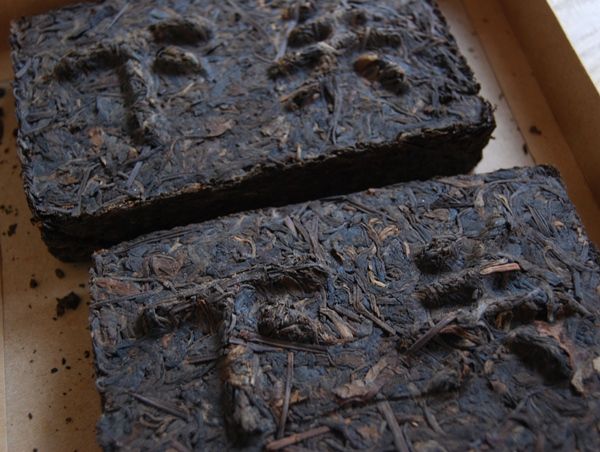
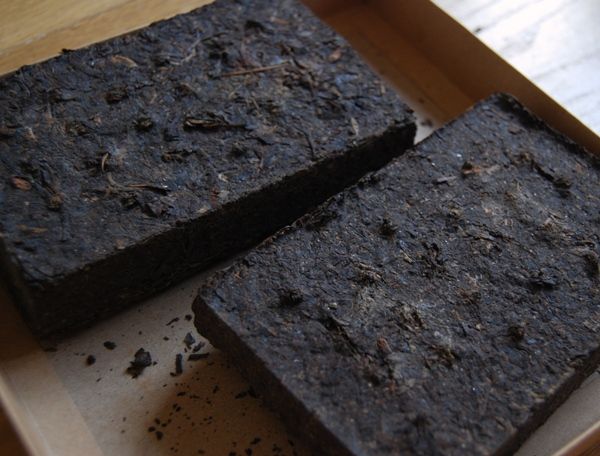
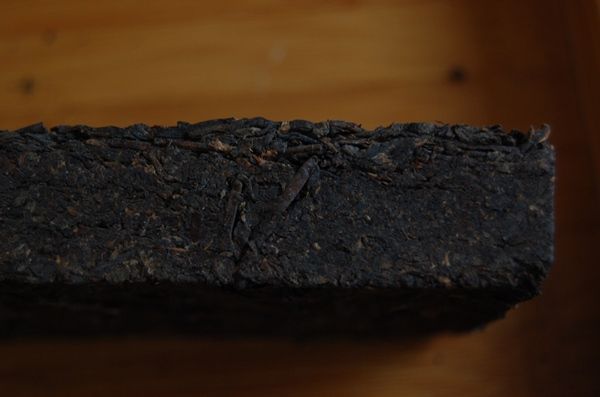
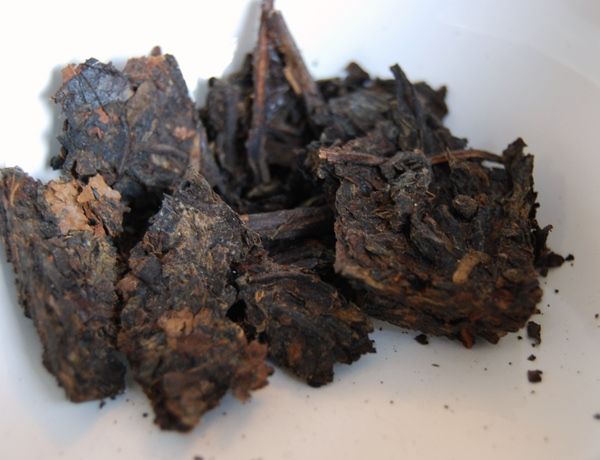
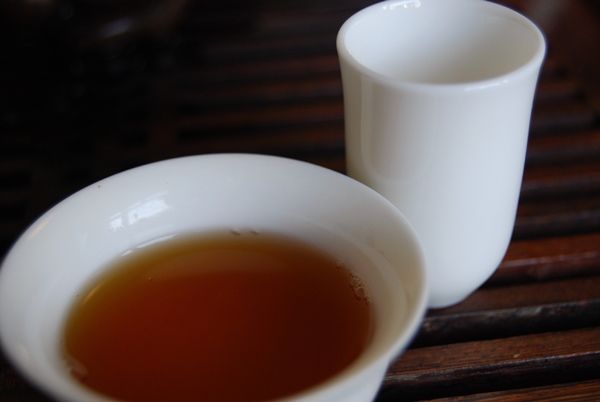
These things are indeed pretty decent, so long as they're old enough and stored well enough. In terms of price/quality, they're hard to beat.
ReplyDeleteAs long as you don't mind that mulch, they can be solid :)
ReplyDeleteI have a recipe for Yak butter tea, which I intend to make using some of these leaves (I snagged a few of them back in '06, and remember them still being fairly brutal at the time). Interesting history on these little guys too. I'll have to dig it out and give it a try sometime soon.
ReplyDeleteBest wishes,
jamus~